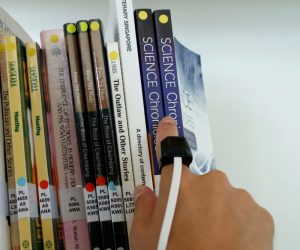Tips for Preparing Yourself and Applying for Graduate Studies and a Career in Research
There is a world of possibilities in your hand once you graduate with your first degree. Pursuing post graduate studies is an obvious avenue for you; if you are a passionate individual craving to explore the unknown.
Obtaining admission to your dream school and getting the opportunity to work under the guidance of a researcher in your field of interest is the most enthralling moment in this journey. In fact, it will be the foundation of who you want to be in a few years’ time. If you have already started applying to graduate schools, it is needless to say how challenging this first step could be. Among a vast pool of very competitive and capable applicants, how can our profile stands out from the rest? The answer is very straightforward. If you are on the right track from the beginning, chances are that you will become a sought after PhD candidate.
During the Undergraduate Period…
Preparing yourself to pursue graduate studies while you are still an undergraduate will be quite beneficial to achieve the competitive edge during the admission process.
Many of those who got selected to the top-ranked universities have some undergraduate research experience in their graduate profile. Engaging in research work, however, as an undergraduate student is not just a one-step process. Finding an area which your passion lies will be the key to become a successful researcher. You should dedicate the first half of your undergraduate life to learning to identify this desired area. Towards the latter part of the undergraduate period, you can slowly start doing some research in this area. The easiest way to initiate this is to discuss this with your Professors and seek their guidance.
Continue to read and read, all the time! Read about the recent developments in your research area, and about the accomplishments of the experts in the field etc. Choosing the internships to support building your research background will also help at the end of the day. Even if your internship is not at a research and development organization, it is worthwhile to work in an organization that has their business operations aligned to your field of interest.
The most important outcome of your research work during this period will be to publish your work, preferably as a journal publication or as a conference paper. It will add greater value if you have received at least the acceptance confirmation of your research work for a journal or a conference by the time you are submitting the application for graduate studies.
Apart from that, there are few other important factors you could concentrate on, apart from pursuing research as an undergraduate. First thing is, your Grade Point Average (GPA) can have a significant impact on your application. At the same time, it is quite imperative, that the subjects you choose as electives be relevant to your desired area. Undertaking online courses offered by the universities around the world is one other way to broaden your knowledge areas. The evaluators of your graduate admission application can understand how you have laid the foundation in learning the fundamentals in that area. Mainly for graduate studies in the engineering disciplines, having a sound mathematical background matters a lot. One way to prove your mathematical proficiency is to obtain good grades in the exams. Also, winning/participating in competitions like International Mathematics Competitions for University Students, international programming competitions and robotics competitions etc. will be a testimony for your excellence.

Graduated Already?
Here are some more tips for those who are planning to apply for graduate studies in the future.
The most crucial aspect of this application process is choosing a set of universities which you are going to apply. There are a number of factors to be considered for that. A feasible approach for this would be to start searching for the professors who have published recent researches in your field of interest. This way you would be able to get an idea about the universities that have a strong research portfolio in that area. You could write to the faculty members directly, introducing yourself and the academic background, briefing the related work you have done so far and some accomplishments and also stating why you are interested to become a graduate student of him/her. Do not forget to attach your CV and the transcript as well to the email.
It is always advisable to select the universities in all top, middle and lower tiers just to account for all the possibilities. You might be interested to cover several geographical regions as well (Eg: USA, Australia, Europe and Singapore etc.). It is quite essential to read their graduate school website and the department website thoroughly and make a record of all the important information stated. Some of the most basic information you should look for include, application deadlines and fees, minimum requirements for admission, required test scores such as GRE and TOEFL/IELTS, required supporting documents for the application and related faculty members with their contact details etc. These requirements are different from university to university and region to region, so having all the information at one place is quite helpful for you to keep track on everything and also to finalize the set of universities you wish to apply to.
It is also useful to have an idea about how you can obtain financial support for your graduate studies. Almost every university provides some financial support for PhD students by means of fellowships, graduate research assistantships and graduate teaching assistantships. These are awarded to those who have excellent academic records and other related experiences. Pay close attention to the procedure of applying for these scholarships; though many universities implicitly consider you for the financial support, there might be other universities where you have to apply separately for the scholarships. Note that many universities have priority deadlines to be eligible for these funding opportunities.
The next big thing in this application process is getting all the supporting documents ready. Some of the major documents required for almost every university are the transcripts of your previous degrees, the CV/Resume and the statement of purpose (SOP). Your SOP will be very influential as it is the document which will reflect your personality to the reviewing committee. In fact, the SOP is the document which describes yourself, your academic background, related experience, how you enhanced the traits of a successful graduate student throughout the past years, your future goals and how this particular university can be the best place to realize your expectations etc. It is also important to outline to the reviewers some sense about your versatile personality highlighting some work related to your leadership and volunteer activities. However, keep in mind, the SOP is not simply writing down everything that is already in your CV. It is about indicating your preparation over the past years to become a successful researcher one day. Some universities might have their own guidelines for this, so it is advisable to follow their expected structure for the SOP.
There are some additional supporting documents that you may need to upload, and those might be a personal statement (where you describe about your accomplishments, extra-curricular activities, any hardships you had to undergo as an undergraduate or high school student, and attributes of yours which can make you a potential candidate for the graduate studies at this university), a research proposal (some universities requires you to write a research proposal for a research topic provided by a faculty member you contacted earlier) and a writing sample (this could be a write-up about one of your projects or research conducted earlier in order to reflect your analytical and writing skills) etc.
The next important thing is to get strong recommendations for your application which will be another very important attribute of your application. These can have a huge impact during the reviewing process more than we believe. The most suited referees will be your previous supervisors and faculty members who are familiar about your potential and personality. It is good to contact them well beforehand and also allow them sufficient time prior to the deadline, so that they can provide well customized and appealing recommendations about you.
Last thing is, talk to your friends or seniors who are already pursuing their graduate studies in top ranked universities in the world. The tips given by them will be very valuable which can help to add greater colour to your application.
Yes, it is a very vigorous process to apply for graduate studies. But as I said earlier, if you be determined and work really hard, nothing could be more rewarding than becoming a graduate student at a world class university as it will be the foundation step in the journey of becoming a prominent researcher in the world!
A Special thanks to Buddhima Gamlath, a Lecturer (on Contract) at the University of Moratuwa, Sri Lanka, for helping us to compile this article. Among his many accomplishments are, he is a Silver Medalist at the International Mathematics Competition for University Students 2014 and has also won a Bronze medal and an honorable mention in International Mathematics Olympiad in 2009 and 2008 respectively. He has ranked in top 50 in IEEEXtreme programming competition for five consecutive years (2010 to 2014). At the moment he has been accepted to École Polytechnique Fédérale de Lausanne (EPFL), Switzerland as a doctoral student with fellowship funding. We wish him all the best in future endeavors.
This article was written by Nadee Seneviratne, Junior Assistant Editor for IMPACT by IEEE Young Professionals
Article edited by Michael Gough, Assistant Editor, IMPACT by IEEE Young Professionals






